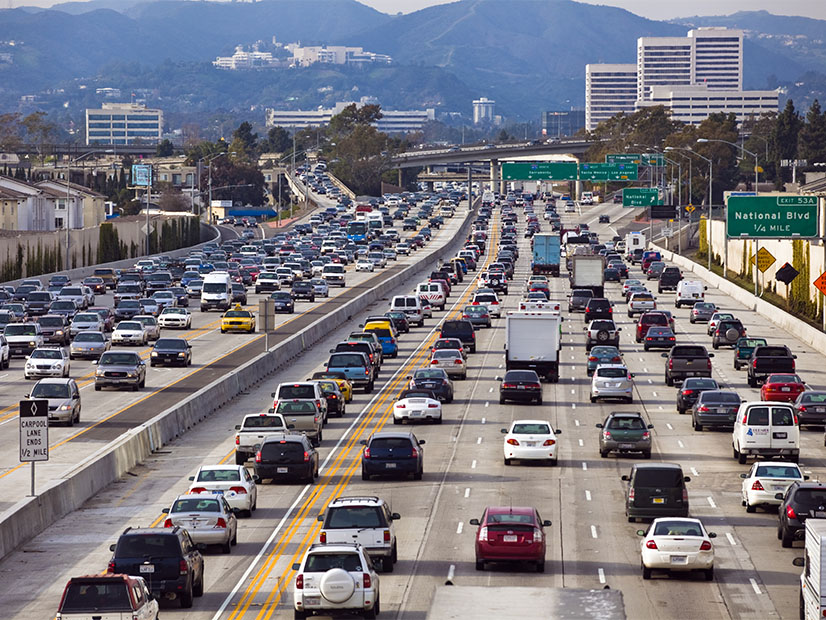
The Biden administration could be days away from restoring California’s authority to adopt tailpipe emission standards that are more stringent than federal standards.
Citing “multiple sources,” E&E News reported Tuesday that the EPA could reinstate California’s authority as soon as Wednesday of this week. An EPA spokesperson told CNN that the agency expects to issue a decision on the waiver “in the near future.”
The EPA press office didn’t immediately respond to NetZero Insider’s request for information on Thursday.
At issue is a federal Clean Air Act waiver granted to California most recently in 2013 that allowed the state to enforce its tailpipe emission standards for cars and light-duty trucks — as long as the standards are at least as stringent as those of the EPA — as well as a zero-emission vehicle sales mandate. The low-emission vehicle and zero-emission vehicle (ZEV) programs are included in the California Air Resources Board’s Advanced Clean Cars regulation.
Other states were allowed to adopt California’s tailpipe emission standards as an alternative to using federal emission standards.
But in September 2019, the Trump administration adopted The Safer Affordable Fuel-Efficient Vehicles Rule Part One: One National Program Rule (SAFE-1), which rescinded California’s ability to set its own standards.
Then, on his first day in office last year, President Joe Biden issued an executive order directing federal agencies to immediately review actions taken under the Trump administration. The SAFE-1 rule was one that Biden’s order called out specifically.
In April 2021, EPA announced it was reconsidering the previous administration’s withdrawal of California’s waiver. EPA Administrator Michael Regan said at the time that the 2019 action was “legally dubious.”
“I am a firm believer in California’s long-standing statutory authority to lead,” Regan said.
Advanced Clean Cars II
The possible reinstatement of California’s ability to regulate tailpipe emissions comes as the California Air Resources Board (CARB) expects to roll out a new version of its emissions regulation.
Known as Advanced Clean Cars II, the new rule would apply to cars and light-duty trucks starting with model year 2026. CARB expects to finalize the regulation this year. (See CARB Preparing Full Course of ZEV Rules for 2022.)
As of this month, 17 states and the District of Columbia have adopted California’s low-emission vehicle regulations. Most of those have also adopted California’s ZEV regulation.
And other states may soon join the list. The New Mexico Environmental Improvement Board has scheduled a public hearing on May 4 to consider the proposed Clean Cars New Mexico regulation.
Nevada’s clean cars regulation, adopted in October, notes that the state will not enforce the regulation until the EPA reinstates California’s waiver or issues a new one.
California’s Response
In response to the EPA’s decision to rescind California’s waiver, CARB announced in 2019 that a group of automakers — Ford, Honda, BMW of North America and Volkswagen Group of America — had agreed on voluntary measures to reduce emissions. The framework included annual reductions of vehicle greenhouse gas emissions through the 2026 model year and steps to promote the transition to electric vehicles.
In addition, a California-led coalition quickly challenged in court EPA’s action to rescind the waiver. Litigation in that case was stayed while the current EPA reconsiders the waiver, according to a July release from California Attorney General Rob Bonta.
Bonta was joined by attorneys general from 20 other states and the District of Columbia along with representatives of several cities in sending a letter to EPA in July. The letter asks the agency to restore California’s waiver and rescind a previous determination that Section 177 of the Clean Air Act does not authorize other states to adopt California’s greenhouse gas standards for passenger cars and light trucks.



